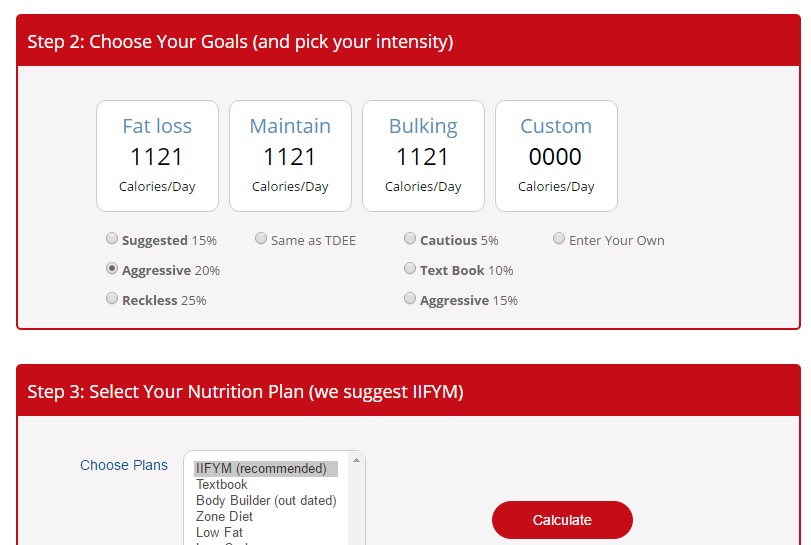
Her suggestion of counting your calories now sounds ridiculously simplistic, but at the time, no one was really thinking about slices of bread in terms of calories. As the beauty ideals were changing from bosomy women with cinched waists in corsets to women with thin, slender frames in straight loose dresses, she suggested calorie counting as a way to lose weight. It was one of the first modern diet books ever released. In 1918, a doctor named Lulu Hunt Peters published Diet and Health: With Key to the Calories.

That kind of weight loss logic has since largely been debunked - there are so many other factors that come into play with weight loss, from hormones to how processed your food is. “For some reason, even though Europeans remained to a certain extent dubious about the worth of calorie counting and dieting, it took off in America in a really big way.” And while 1,200 calories isn’t necessarily enough for most adult bodies, it’s not like it’s a completely arbitrary number it came from calculations during the late Victorian period, a measurement of calories in, calories out. “It really goes back to late 19th-century Europe, and especially in Germany, they were doing a lot of work on calories and calorie counting,” she told me. Louise Foxcroft, a medical historian and author of 2011’s Calories and Corsets, a book about the history of dieting over the last few thousand years, believes that the 1,200-calorie diet goes back much further than most modern diets.

So if it’s so bad for us, why do we keep trying it - and failing - only to blame ourselves instead of the diet itself? A 1,200 calorie diet, according to most nutritionists or food experts, is a restrictive, unsustainable, likely unhealthy diet for any adult woman. “Didn’t everyone?”Įvery woman of every generation in my family has attempted this diet, from my 65-year-old mother to my 30-year-old cousins. When I asked one friend if she had ever tried it, she replied with incredulity. Diet culture is pernicious and the 1,200 calorie diet is so ubiquitous that it feels almost ridiculous to ask if anyone’s tried it.

At its worst, eating so little even temporarily can screw up your metabolism for life, making your body think it’s always in survival mode. They perpetually felt guilty for whatever food choices they made. They hoped to lose weight instead, they felt faint all the time, were ravenous when it was time to eat, and binged when they couldn’t take it anymore. Most learned the magic 1,200 number in middle or high school, carrying on with the diet until their twenties or thirties. Many of these women said they kept food diaries, used MyFitnessPal, counted macros or cut down carbs. One woman told me how she used to eat just 1,200 calories, but now that she’s pregnant, is struggling with the necessity to eat more and gain a little weight. “It is not.” Another called it a “fucking brutal deficit” to try to live on. “I definitely thought that was the ‘correct’ amount of food as a teen,” one woman wrote back to me. Earlier this week, I asked my Instagram followers if they’d ever tried eating just 1,200 calories a day, and every reply was from a woman who had attempted, and often failed, at eating so little. (If you’re active, maybe you can consider 1,500.) Most regimented diet programs, like Weight Watchers, are similarly based on a 1,200 caloric intake, just hidden behind a “point” system so it doesn’t feel like calorie counting. The diet is pretty simple: Count your calories diligently, and make sure you don’t go over 1,200 for the day. Here’s an unscientific but still upsetting poll: It seems that nearly every woman I know has done the 1,200-calorie diet at some point in their lives, including myself.

“It showed how disordered so many women eat and think about food.” Another wrote that 1,200 seemed like a lot and that she would “stick to 800.” “The comments were really upsetting,” Nadeau told me over the phone in late December. “It’s the only way I lose any weight,” wrote one woman. The comments to her video are pretty clearly split half of them are from people agreeing, while the other half are women trying to rationalize why 1,200 calories is exactly right for them. Then she revealed that 1,200 calories is actually only enough daily nutrition if you’re an “8oish lb dog” or a toddler. “Is 1,200 calories right for you?” she asked in a voiceover while pointing at a MyFitnessPal screenshot and smiling. In September, Jamie Nadeau, a 32-year-old nutritionist based in Massachusetts, posted a TikTok that went semi-viral.


 0 kommentar(er)
0 kommentar(er)
